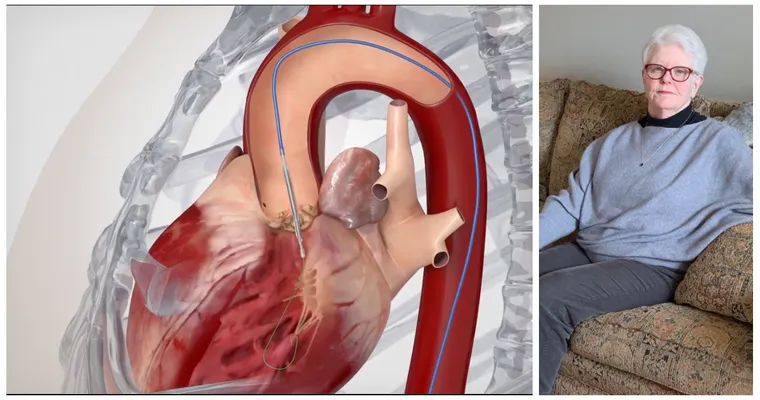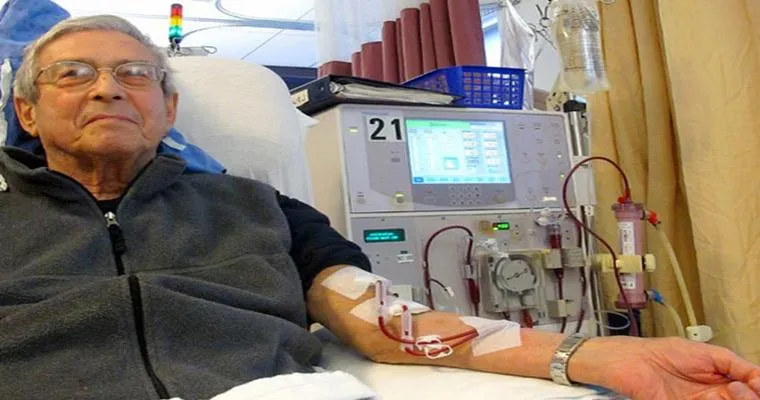If your dad is facing the possibility of a "Transcatheter Aortic Valve Implantation" (TAVI), it is essential to provide him with the right support and guidance. This minimally invasive procedure is designed to treat "aortic stenosis", a condition where the heart's aortic valve narrows, making it difficult for the heart to pump blood. Understanding the procedure, its benefits, risks, and post-operative care can help both you and your dad navigate this significant decision.
Understanding Transcatheter Aortic Valve Implantation
Transcatheter Aortic Valve Implantation is a less invasive alternative to traditional open-heart surgery for patients who are at high risk for complications. During the procedure, a new valve is delivered via a catheter, typically through a blood vessel in the leg, and positioned within the diseased valve. This approach reduces recovery time and hospital stays, making it an attractive option for many patients.
Discussing the Benefits
When recommending TAVI to your dad, emphasize the numerous "benefits" associated with the procedure:
1. "Minimally Invasive": Unlike traditional surgery, TAVI usually requires only small incisions, leading to less pain and a quicker recovery.
2. "Shorter Hospital Stay": Many patients can return home within a few days post-procedure.
3. "Improved Quality of Life": Most patients experience relief from symptoms like shortness of breath and fatigue, allowing them to return to daily activities.
4. "Reduced Risk": For those with high surgical risk, TAVI presents a safer alternative with a lower chance of complications.
Addressing Potential Risks
While TAVI has many advantages, it is crucial to discuss the potential "risks" with your dad. These may include:
"Bleeding": As with any procedure, there is a risk of bleeding at the catheter insertion site.
"Infection": Any surgical procedure carries the risk of infection, although this is rare.
"Valve Leakage": In some cases, the new valve may not fit perfectly, leading to leakage.
"Arrhythmias": Some patients may experience irregular heartbeats after the procedure.
Encourage your dad to discuss these risks openly with his healthcare provider to understand what they mean for his specific situation.
Preparing for the Procedure
Preparation is key to a successful outcome. Advise your dad to:
1. "Consult with Specialists": Ensure he meets with a cardiologist and a heart surgeon experienced in TAVI to discuss his individual case.
2. "Undergo Necessary Testing": Tests like echocardiograms, chest X-rays, and CT scans may be required to determine the best approach.
3. "Review Medications": Some medications may need to be adjusted before the procedure, so a thorough review with his doctor is essential.
Post-Operative Care
After the procedure, proper "post-operative care" is vital for recovery. Here are a few recommendations:
"Follow-Up Appointments": Schedule regular check-ups to monitor heart health and valve function.
"Lifestyle Modifications": Encourage a heart-healthy diet, regular exercise, and smoking cessation if applicable.
"Watch for Symptoms": Be vigilant about any signs of complications, such as increased shortness of breath or swelling, and seek medical attention if they arise.
Conclusion
Recommending "Transcatheter Aortic Valve Implantation" to your dad can be a life-changing decision that significantly improves his quality of life. By understanding the procedure, discussing its benefits and risks, and ensuring proper preparation and post-operative care, you can support him through this journey. Open communication with healthcare professionals will empower both of you to make informed choices that prioritize his health and well-being.





